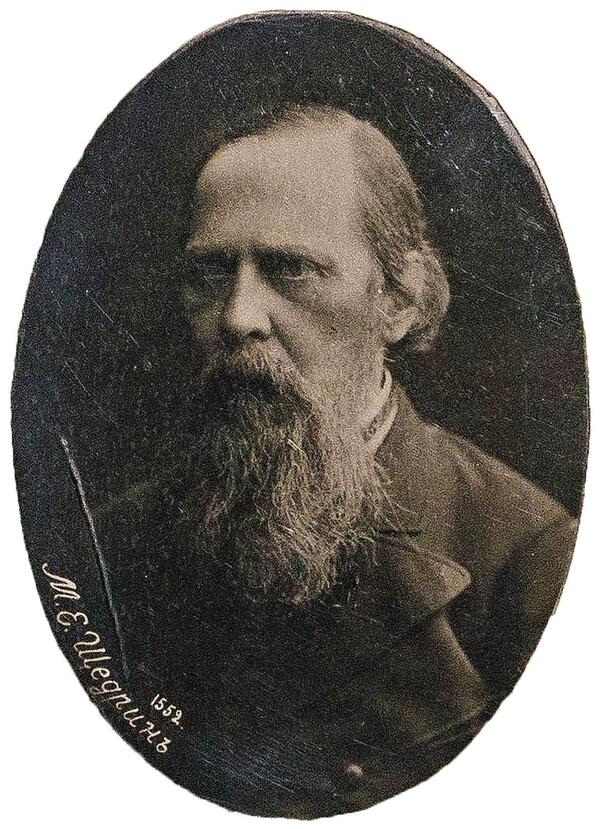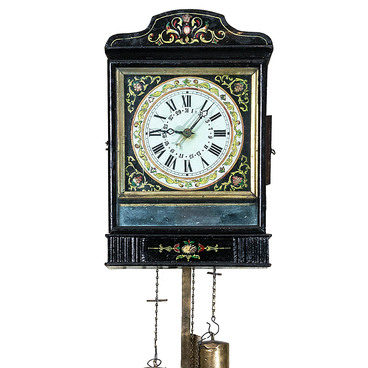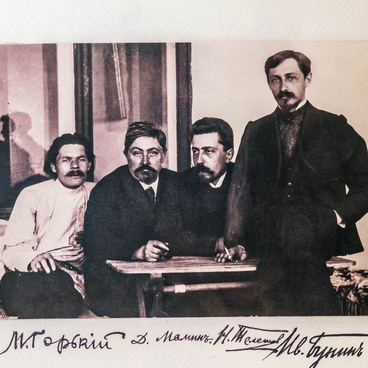A photograph of the writer, editor and publicist Mikhail Saltykov-Shchedrin in a carved wooden frame stands on the table in Dmitry Mamin-Sibiryak’s study. Mikhail Saltykov-Shchedrin became a teacher and an example for the Ural author, even though they met only once in their lives.
The writers met in 1877 in St. Petersburg, in the editorial office of the magazine “Patriotic Notes” [“Otechestvennye Zapiski”], where Saltykov-Shchedrin was chief editor. Mamin-Sibiryak was 25 years old at the time, and he just started publishing his works. The writer brought one of his early unfinished manuscripts to the publishing house. According to recollections, Saltykov-Shchedrin returned the text to him and said: “We do not accept such things.”
Back then, Mamin-Sibiryak wrote that he had been “obfuscated”, but the rejection made him work even harder. Five years later, in October 1882, he sent to the “Patriotic Notes” [“Otechestvennye Zapiski”] his essay “Zolotukha”. The editorial board accepted it for publication. The writer shared the news with his brother Vladimir Mamin:
The writers met in 1877 in St. Petersburg, in the editorial office of the magazine “Patriotic Notes” [“Otechestvennye Zapiski”], where Saltykov-Shchedrin was chief editor. Mamin-Sibiryak was 25 years old at the time, and he just started publishing his works. The writer brought one of his early unfinished manuscripts to the publishing house. According to recollections, Saltykov-Shchedrin returned the text to him and said: “We do not accept such things.”
Back then, Mamin-Sibiryak wrote that he had been “obfuscated”, but the rejection made him work even harder. Five years later, in October 1882, he sent to the “Patriotic Notes” [“Otechestvennye Zapiski”] his essay “Zolotukha”. The editorial board accepted it for publication. The writer shared the news with his brother Vladimir Mamin:



